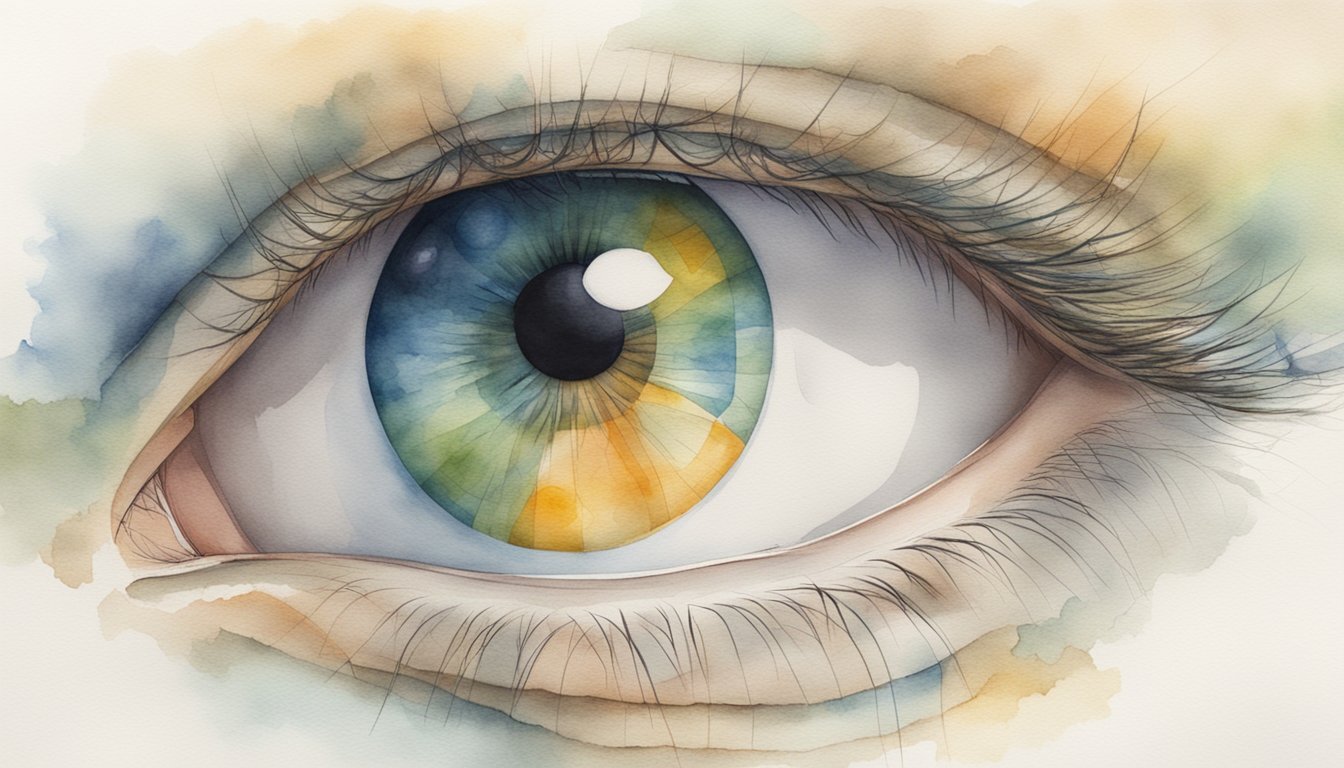Understanding Left Eye Twitching Superstition
Left eye twitching can often be seen through the lens of superstition, an intriguing aspect of cultural folklore. Different cultures across the world interpret this common phenomenon in varied, and sometimes opposing, ways. By exploring these interpretations, we can gain insight into a wide array of beliefs regarding twitching of the left eye.
Cross-Cultural Beliefs
The superstitions surrounding left eye twitching span the globe. In Chinese culture, a twitch in the left eye is often seen as a sign of good luck for men, whereas it may be perceived as a harbinger of misfortune for women. Likewise, Indian astrology suggests that the significance of eye twitching can be determined by the gender of the person experiencing it. Across the ocean, in Hawaii and various Caribbean islands, left eye twitching is sometimes thought to signal an impending visitor or an unanticipated event. In some African cultures, on the other hand, left eye twitching could be seen as an indication of forthcoming sorrow or disappointment.
Interpreting the Time and Location
In addition to cultural differences, the interpretation of left eye twitching superstitions may also hinge on the time of day and the specific part of the eye involved. Chinese astrology references the ancient Tong Shu almanac, which correlates specific times with the meaning of a twitch. For example, a twitch of the left eye between 11:00 p.m. and 1:00 a.m. might be interpreted as an auspicious sign. The location of the twitch is also significant; a twitch in the upper eyelid might mean something entirely different from a twitch in the lower eyelid or eyebrow.
Gender-Based Interpretations
Notably, many of these superstitions also differ by gender. In many places, males and females are said to have opposite fortunes when it comes to left eye twitching: with males potentially facing bad luck and females the reverse. This gender-based approach to eye twitching interpretation reveals yet another layer of complexity within these widespread beliefs.
Scientific Perspectives on Eye Twitching

In exploring the causes and implications of eye twitching, it is essential to differentiate between the superstitions and scientific explanations. While cultural interpretations can vary widely, scientific research provides a more grounded understanding of this common physical occurrence.
Common Causes and Triggers
Eye twitching, medically known as myokymia, occurs when the muscles around the eyelids involuntarily contract. The common causes of these spasms include:
- Fatigue: A primary trigger, lack of sleep can lead to twitching.
- Stress: High stress levels are often correlated with an increased incidence of eye twitches.
- Caffeine and Alcohol: Overconsumption of stimulants like caffeine and depressant substances like alcohol can contribute to eye twitching.
- Eye Strain: Extended screen time and reading can lead to eye fatigue and subsequent twitching.
Symptoms and Remedies
Symptoms of eye twitching range from a barely noticeable twitch to more pronounced spasms that can cause the eye to close completely. Remedies typically involve addressing the underlying causes:
- Rest: Ensuring adequate sleep can alleviate fatigue-induced twitching.
- Reduce Stimulants: Limiting intake of substances like caffeine and alcohol can help.
- Eye Drops: To combat dry eyes, one can use lubricating eye drops.
- Screen Breaks: Regular breaks from screen time reduce eye strain and twitching.
Managing Stress and Environmental Factors
Managing factors that increase stress or contribute to eye irritation can prevent or reduce eye twitching:
- Stress Management Techniques: Activities such as meditation, exercise, and breathing exercises can lower stress levels.
- Environmental Protection: Wearing sunglasses can protect the eyes from harmful UV rays and air pollution.
When eye twitching is persistent or accompanied by discharge, redness, swelling, or other concerning symptoms, it is advisable to consult a doctor. These signs could indicate more serious conditions that require medical attention, such as allergies, infection, or neurological disorders.

